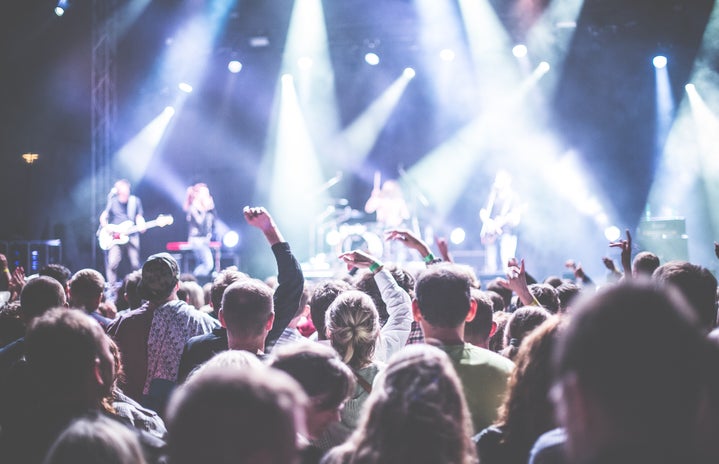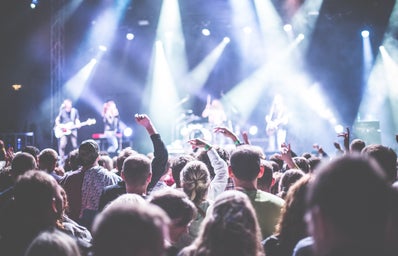“Charlottesville is place full of love, a place full of hope.” – Dave Matthews, September 24, 2017
Most everyone in the country is aware of the “events of August 12,” as many refer to them, that plagued Charlottesville, Virginia. These “events” weren’t your typical “events” or invite-only party scenes; instead, these events were a white supremacist rally. The “Unite the Right” rally was planned for August 12 to protest the removal of a statue of Confederate general Robert E. Lee from Emancipation Park (formerly named Lee Park). The rally turned deadly when a driver intentionally drove a car into a crowd of people, injuring 19 and killing one woman, Heather Heyer.
Unsurprisingly, the violence shook Charlottesville. The place that many families and students call home was suddenly recognized across the world, as it stood out as a modern example of blatant racism. The street where Heather Heyer was turned into a memorial site, and suddenly blue hearts emblazoned with “C’ville” were posted around the city.
(A memorial for Heather Heyer marks where James Fields, Jr. drove a car into a crowd of people.)
(Image courtesy of abcnews.com)(Following the attacks, blue hearts with C’ville have appeared around the community to stand for healing.)
(Image courtesy of jvprincipal.files.wordpress.com)
(A chalk-drawn memorial stands at the end of Charlottesville’s Downtown Mall in the week following the rally.)
The community worked, and still works, to heal itself, with grassroots vigils planned, dialogue groups, and letters of hope from across the country.
Fast forward three weeks from August 12, and you couldn’t walk around Grounds without hearing someone talk about the “free Pharrell concert,” or the “free Justin Timberlake concert,” or the “free Ariana Grande concert.” No matter what your friends were calling it, it was suddenly the next big thing. And the best part? Tickets were free and handed out on a lottery-basis. 35,000 tickets were distributed to lucky lottery winners, and 3,000 were made available one Friday at the box office. Although there was much controversy surrounding the dispersal of the tickets, this past Sunday night saw a Scott Stadium that had more people in it than the last two home football games combined.
(A view of the large crowd at Scott Stadium for the Unity Concert.)
The concert, officially called “A Concert for Charlottesville: An Evening of Music and Unity,” was planned by Charlottesville local Dave Matthews to bring the community together in the light of the Unite the Right rally. Chris Martin, lead singer of Coldplay, explained that he and bandmate chose to fly to Charlottesville from Oregon, because “the point is to show up and show that you care.” The performing artists included Dave Matthews Band, Cage the Elephant, The Roots, Brittany Howard, Pharrell Williams, Chris Stapleton, Ariana Grande, and Justin Timberlake. Both Coldplay themselves and Stevie Wonder surprised the crowd with appearances the night of the concert.
I will openly admit that in the weeks leading up to the concert, I found myself questioning what I had done to deserve a ticket. My roommate, a volunteer EMT, was given two free tickets for being a first-responder, and I was lucky to be chosen as her plus-one. Still, as I saw posts on Facebook from people looking to sell their tickets to the bidder with the “best offer,” I couldn’t help but feel that the meaning of the concert was lost behind the glamor of the artists attending.
In fact, the walk to the concert was filled with a strange tension between two tones: an excitement to see Justin Timberlake live, and a stark reminder of why Charlottesville was on these artists’ radars. As I waited in line to enter the stadium, a woman with a firm handshake and a box full of flyers handed me a small pink sheet of paper titled “Unity is not enough.” On one side of the sheet included a description of how to move forward past the white supremacist rally, which stated that we must conduct our lives “in a way that our livelihood and liberation is directly tied to that of the most vulnerable and marginalized in our community.” The other side of the sheet listed easy ways to continue the fight against discrimination. Suggestions included things as simple as confronting discrimination, talking about race, and attending a city council meeting. I was immediately reminded of the meaning of the evening.( The back side of the flyer includes easy ways to begin to fight discrimination.)The tasks on the sheet, small but meaningful, go a long way in the fight against discrimination, just as the concert did to a certain extent. In the crowd, I found myself squished between my roommate and local Charlottesville High School students, all the while trying not to accidentally tap my feet on the seats of the young family in front of me. Around me, I saw the larger Charlottesville community that stood up against hatred and violence, and, for the first time, my conversations regarding the alt-right rally included members outside of the University community.
While the performances themselves were just as amazing and moving as you would expect, many concertgoers did not expect the words of wisdom that the performers imparted on the crowd.
Stevie Wonder, the closing act, led the audience members in an incredibly moving decree to consider their own responses to injustice. He said:
“If I can see [injustice], then damn it, I know you can see it… But see it not with your eyes; feel it in your spirit with your soul. So the question is: ‘What are we going to do about it? What are we going to do about it to make a difference?’ We must all of us in the world be the difference. One of my favorite sayings is ‘Don’t talk about it; be about it.’”
(A low-quality iPhone photo of Stevie Wonder and Dave Matthews performing at the concert. )
Stevie Wonder’s speech left both himself and Dave Matthews on one knee on stage, urging the audience members to consider their impact on the world. While these reflections came throughout the night, this final one was the most powerful, and left me, and other audience members wondering what our impact might be in our home – Charlottesville.
Needless to say, by the end of the night, I could tell what the impact of the concert was. While it was an inexpensive way to see incredible performers, it was also a call to action from many who ache and care for Charlottesville. If artists like Coldplay and Justin Timberlake see the value in traveling cross-country to spread love, then why shouldn’t Charlottesville citizens work to achieve the same?
(thumbnail photo courtesy of wqmz-fm.sagacom.com)

